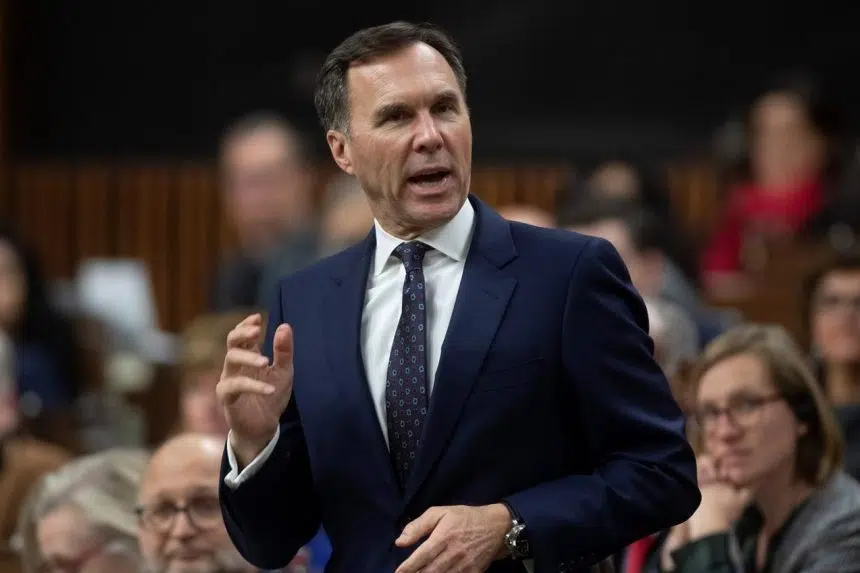OTTAWA – A federal program that tops up provincial revenues in response to sudden economic downturns won’t be getting any changes until at least this spring.
Finance ministers in Alberta and Saskatchewan say they expected short-term fixes to the fiscal stabilization fund earlier than that and are now wary they will have to wait until after the federal budget to learn about the impact on their own finances.
The program, which has not changed since 1995, provides help to provinces facing a year-over-year decline in non-resource revenues, but the money available to eligible provinces is capped at just $60 per resident.
Increasing the amount of money it provides was a key demand from western provinces in particular following the October federal election that saw the Liberals lose a great deal of electoral support in the region – and shut out of Alberta and Saskatchewan entirely.
The fiscal stabilization program is easier to change than the more complex equalization program, and amendments could be worth billions to provinces whose finances have been hit by low oil prices.
Federal Finance Minister Bill Morneau had promised provincial finance ministers at the end of last year that he’d get back to them by the end of January with a process for updating the decades-old program.
In a letter to his provincial counterparts this week, Morneau says he’s now instructed his officials to report back this spring – without a specific date.
The letter said the ideas the provinces put forward on how to reform the fiscal stabilization program are still being analyzed by Finance Department officials, who are reaching out to their provincial counterparts for more information and clarification so the Liberals can understand them fully.
“I have also instructed my officials to provide me advice on potential adjustments to the fiscal stabilization program, including analysis of the potential fiscal risk for the federal government, for consideration in spring 2020,” he wrote in the letter obtained by The Canadian Press.
At the December meeting, the provinces proposed changes to the spending caps, lowering qualifying thresholds for different types of revenue, and retroactive payments for the last five years.
Morneau pledged to do more to assuage concerns from energy-dependent provinces, particularly in the West where they felt ignored by Ottawa.
His spokesman, Pierre-Olivier Hebert, said the letter to provincial finance ministers letting them know he has asked his officials to review the program with their input in mind is the update he promised.
“Finance officials will provide advice on potential adjustments for consideration in spring of 2020,” he wrote in an email.
Saskatchewan Finance Minister Donna Harpauer said she was frustrated and disappointed with Morneau’s letter because the finance ministers expected some “immediate steps” on the program.
“What he committed to at the (December) meeting was that he would let us know the timeline by before the end of January. But the next steps that I’m reading in this letter … is that his officials will kind of work on the program and then provide advice to him some time in the spring,” she said in an interview Thursday.
“There’s still no next steps, there’s still no actionable, there’s no obvious point where decisions will be made that we’re being apprised of.”
Alberta Finance Minister Travis Toews told Morneau in a phone call this week the province is looking for concrete action, according to a spokeswoman.
“Minister Toews reiterated that while we have appreciated the positive discussions to date, now is the time for action – not just more talk,” Jerrica Goodwin said in an e-mail.
Stephanie Levitz and Jordan Press, The Canadian Press







